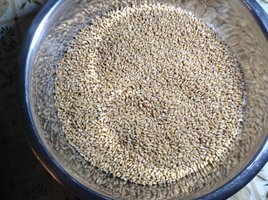Hopefully, but there's a big difference between "should" and "will".
Consider this, You and lots of other people are thinking the same thing. During the depression last century, vast areas of the country were just about completely hunted out and game became very scarce in some parts. Also, taking game for "one" is a loss unless you have the means to preserve all the excess meat that cannot be consumed before it spoils......think summer heat. Meat will go bad within hours. Have you got a few hundred pounds of salt to salt it or large pots and a stove capable of cooking up fifty pounds or more in very short order? Got wrapping materials to wrap it in, or grinder to make sausage that can be smoked for preservation?
If you think the woods are crowded with hunters in good times, just imagine what it would be like in very hard times.
Prepping is a lifestyle, not a one and done thing. Rotation of goods and constant building of your supply as insurance is key. Excess if there is any can always be bartered or given as charity.
Also consider that you will need others around for security reasons. You have to sleep sometime and it's easier if someone is watching your perimeter. They'll have to eat too and if there are some that didn't have their own supplies but trade their skills instead, the food has to come from somewhere. I choose to be at least partially that source for people who would come here.
In trade for that, I immediately get two doctors, a currently flying military helicopter pilot, several strong backs with construction knowledge and skills, a couple of successful lifetime farmers and cattle owners and all have good marksmanship skills.



![Smile [smile] [smile]](/xen/styles/default/xenforo/smilies.vb/001.gif)
![Laugh [laugh] [laugh]](/xen/styles/default/xenforo/smilies.vb/012.gif)